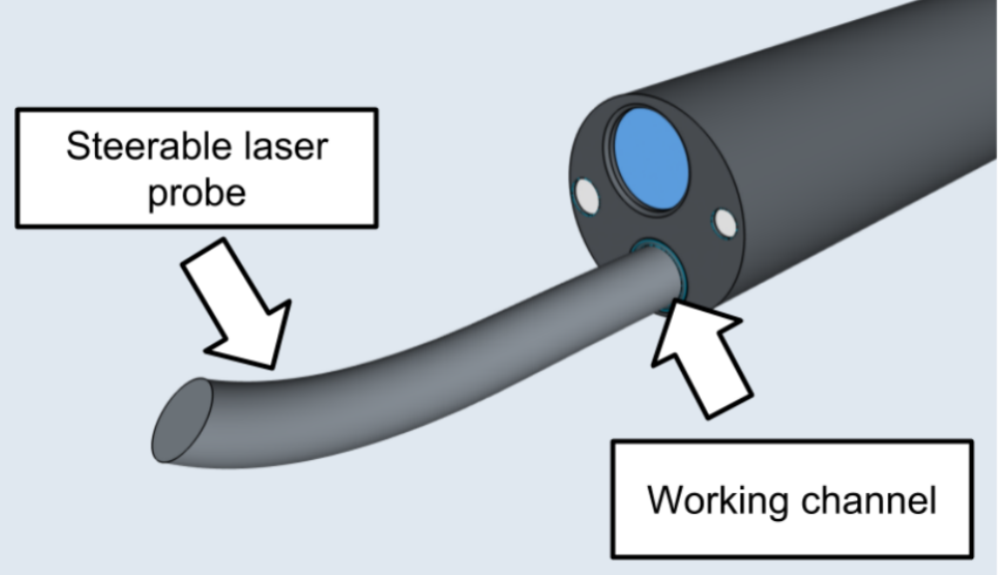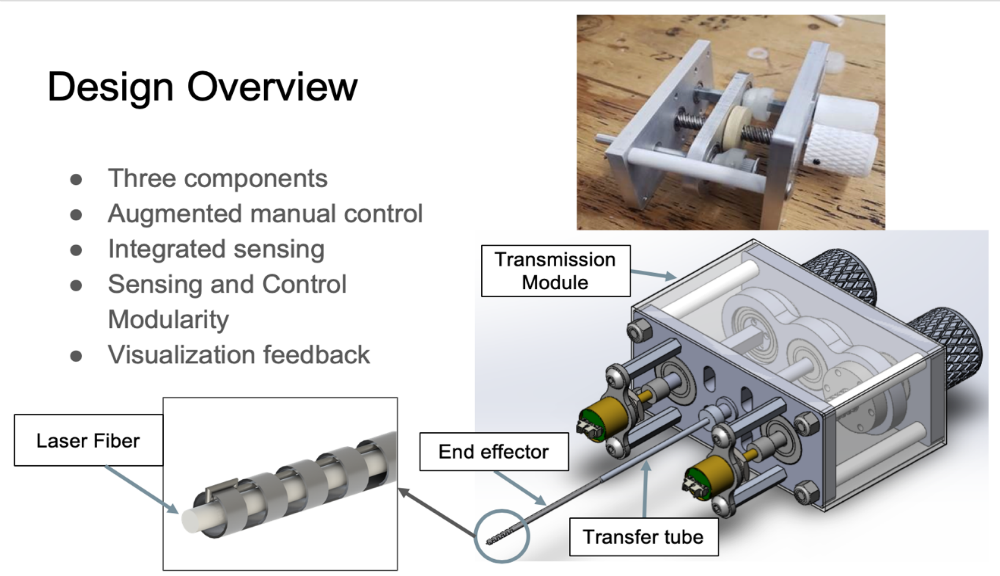Flexible Articulating Surgical Laser Probe
Laryngeal diseases are not uncommon in today’s world. Benign tumors alone (for instance, vocal folds nodules) are estimated to affect nearly 3% of the adult population at any time.[1] Office-based endoscopic laser treatment is an attractive option for many of these pathologies, particularly those that are chronic and require repeated treatment sessions. Unfortunately, many laryngeal disease patients have to make a trip to the operating room anyway, as the laser probes available for office treatment today are rigid and cannot treat areas inaccessible from a straight access path. If a flexible articulating laser probes were available, the management of laryngeal disease could finally shift from the operating room to the clinic, reducing cost to patients and strain on the hospital system.
This product is a miniaturized steerable smart laser probe that can help surgeons treat disease in anatomical locations within the human body that are beyond the reach of traditional instrumentation.
[1] Source: Hah, J. H., Sim, S., An, S.-Y., Sung, M.-W., and Choi, H. G., 2015. “Evaluation of the prevalence of and factors associated with laryngeal diseases among the general population”. The Laryngoscope, 125(11), pp. 2536–2542.
Key Features/Benefits
The current approach to treating recurrent laryngeal disease employs rigid laser probes that are only capable of operating on areas reachable along a straight access path. This inherent limitation in traditional instrumentation means that treatment of recurrent laryngeal disease must often be carried out in the operating room due to its increased level of complexity. The typical cost for laryngeal laser surgery in the US can range from $3000 to $9000.
This new approach, which employs a flexible laser probe, allows access to a much wider range of areas from any one surgical access point, meaning that these treatments could be performed in the doctor’s office rather than the operating room, reducing cost of a treatment to an average of $3,000 and reducing load on operating rooms.

